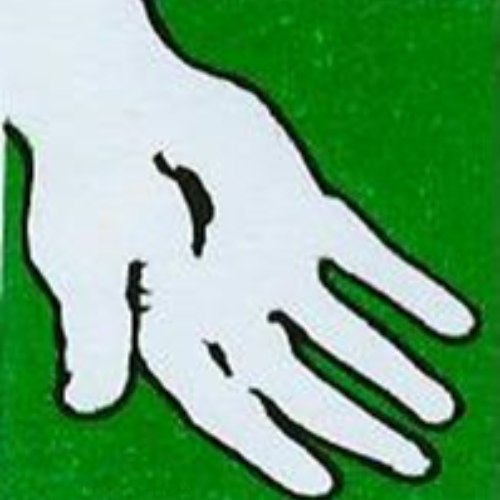What is the Ministry on Health Care?
Rev. Fr. Manuel S. Abogado III
Ministry. Ministry is from the Greek word “diakoneo” which means “to serve.” The word “diakoneo” occurred about 32 times in the New Testament, examples are the following: (1) when Jesus said that he did not come to be served but to serve and to give his life as a ransom for many (Mark 10:45); (2) when he rebuked his disciples for arguing on who is the greatest and forgetting that the greatest among them is the one who serves (Luke 22: 26-27); (3) when he instructed his disciples that if anyone wants to serve him, one must follow him, and where he may be the servant will also be, anyone who serves him, the Father shall honor as well (John 12:26); and (4) when he reminded the wicked in the last judgment that whoever does not serve or care for the hungry, thirsty, naked, stranger, sick or in prison, then they have not cared for him at all, so they deserve and eternal punishment (Matthew 25: 44).
To provide them a model of humility, service and servanthood, Jesus himself washed the feet of his apostles (cf. John 13: 1-17). And on the cross, he laid down his life for his flock in obedience to the will of the Father. Sent by the Father, he came not to condemn the world but to save it (John 3:16). His name Jesus literally means “Yahweh saves.” He saved us from our sins; he willed to save our souls from eternal damnation. In ministering, we save souls. As Jesus’ disciples, we are called to follow and minister like him animated by mercy, compassion and love.
Health. Jesus’ healing ministry touched all aspects of the human person, not only curing the physical affliction, but healing even one’s emotional, mental, familial, moral, social, religious and spiritual aspects. Jesus came that all may have life and have it to the full (John 10:10). We take, for instance, the healing of the paralytic in Mark 2: 1-12. Jesus cured the paralytic from his physical affliction as a sign that the he has authority to forgive sins. He did it because some of the scribes present were thinking to themselves that he was committing a blasphemy for saying to the paralytic, “Child, your sins are forgiven.” The scribes believed that only God can forgive sins and they considered Jesus merely a man. When Jesus commanded the sick to rise and pick up his mat, he also asked him to go home. Good, that the paralytic obeyed Jesus in faith so he was healed.
The words “health,” “whole” and “holy” are all derived from the Anglo-saxon root word “hal.” To be healthy means to be whole and holy. Health in its biblical meaning is inherently related to the Hebrew word “Shalom” which denotes wholeness, completeness, fullness, holiness, perfectness, harmony and peace. There is peace when disease is conquered and healed. Corresponding to “Shalom” is the Greek word “Eirene”. The word “Eirene” also speaks of peace, wholeness and all. But what makes “Eirene” different from “Shalom” is that it describes what God has done for human beings through Jesus Christ. In John 20, upon His resurrection, Jesus will appear amidst his apostles, saying to them “Peace be with you.” He will say those words to them, not only once but thrice (two times in his first appearance and once in his second, when Thomas was already with them) to signify how important these words are for they carry with them his peace, the peace which the world cannot give. For only in Jesus Christ can we truly find rest, in peace.
Care: Moved with compassion, Jesus cares in the Gospels in various ways. In Mark 1: 40-42, moved with compassion, Jesus stretched out his hand, touched a leper and told him that he is willing that he be healed. Instantly, the leprosy left the man and he was healed. In Matthew 20: 32-34, moved again with compassion, Jesus touched the eyes of the two blind men and immediately they received their sight and followed him. In Mark 6: 34, Matthew 14:14, it was compassion that let him fed the multitude. Every time Jesus is moved with compassion, he heals, feeds, provides and all. He even calls people to service as in Matthew 9:35-38:
The Compassion of Jesus. 35 Jesus went around to all the towns and villages, teaching in their synagogues, proclaiming the gospel of the kingdom, and curing every disease and illness. 36 At the sight of the crowds, his heart was moved with pity for them because they were troubled and abandoned, like sheep without a shepherd. 37 Then he said to his disciples, “The harvest is abundant but the laborers are few; 38 so ask the master of the harvest to send out laborers for his harvest.”
Ministry on Health Care. There are no better words to describe this ministry than the one found in the Ethical and Religious Directives for Catholic Health Services of the United States Conference of Catholic Bishops which says, “The mystery of Christ casts light on every facet of Catholic health care: to see Christian love as the animating principle of health care; to see healing and compassion as a continuation of Christ’s mission; to see suffering as a participation in the redemptive power of Christ’s passion, death, and resurrection; and to see death, transformed by the resurrection, as an opportunity for a final act of communion with Christ (USCCB, Ethical and Religious Directives for Catholic Health Care Services, 6th ed. page. 6).
How should a minister on health care, Catholic at that, work then?
Human life is sacred. It originates from God and is destined towards God. All health care workers are then called to minister to this life and to the author of life who is God. Our God is a living God and a lover of Life. He even allowed his only beloved son to suffer and die on the cross that we may live, eternally even with him.
Jesus came that we may have life and have it to the full (John 10:10). A Catholic minister on health care chooses, serves and works for life then. All human beings possess a right to life; this right must be a starting point of reflection in health care.
Catholic health care is not only making the sick better. We hope that as one gets better physically or is cured from his/ her illness, s/he would be able to serve and give his/ her life for others, especially for God, as what the mother-in-law of Simon Peter did after Jesus cured her from fever (Mark 2: 29-31).


